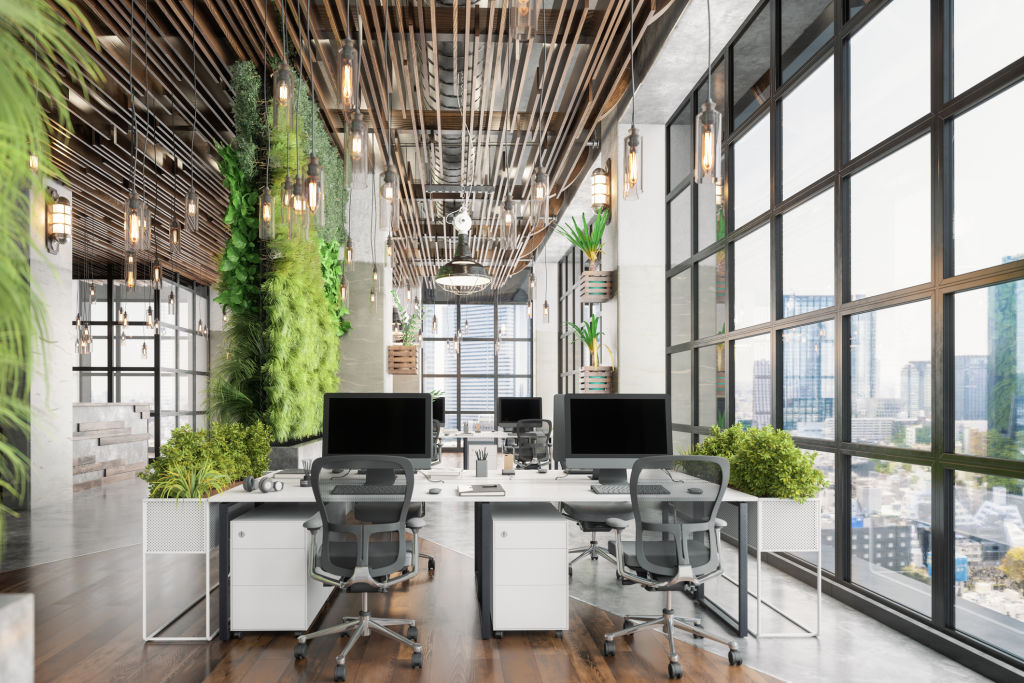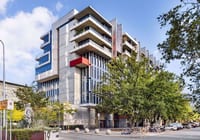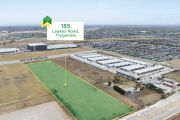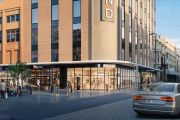
Flexible working a non-negotiable in Australia
Skipping coffee? Unthinkable. Skipping flexible workspaces? Just as unlikely.
The evolution of the office has been laid bare in Australia, with flexible workspaces now an essential part of business strategy whether you’re a traditional occupier stuck with a footprint too large for your hybrid work model, a global organisation having a brand makeover, or a startup moving from a garage to your first office, according to Colliers’ office leasing experts.
Demand for quality is high across key cities, with flexible workspaces designed to accommodate changing business needs, remote work, and empower employee choice.
Done well, they enhance productivity, foster collaboration, and help attract and retain talent by offering greater freedom in how, when, and where people work.
Features include flexible lease terms designed to gear up or down with your business, as well as remote work support such as tech infrastructure, co-working areas, private offices, breakout zones, meeting rooms on demand, and hot desking.
Hyper-flexible workspaces – often favoured by emerging industries – take it a step further.
Featuring digitally-enhanced environments, they offer maximum adaptability. Smart-tech platforms allow staff to book spaces like meeting rooms, hot desks, or private offices as needed. Seamless tech integration enables smooth collaboration between remote and in-office teams, such as video conferencing zones and virtual whiteboards.

Another form of hyper-flexibility is the support of holistic working styles. Wellness features such as chill-out zones, gyms, soundscapes, natural light, and plants bring a level of comfort that mimics a home. You’ll probably also find a sophisticated plumbed-in coffee machine.
This desire for “quality” office space is among the trends shaping occupier behaviour in key office markets in Sydney, Melbourne and Brisbane, according to Colliers’ national network of leasing experts.
Sydney-based Chelsea Hickey, a leasing director at Colliers, says tenants in Sydney are asking for quality, upgraded office spaces, from lobbies and tenancy fitouts to end-of-trip and wellness facilities.
“While quality remains key, value is now a major driver, with plenty of options available. Demand for B-grade offices is rising this year, and 77 per cent of deals are in fitted space, sparking more strategic asset upgrades,” she says.
“The core CBD leads activity, representing 44 per cent of current deals, reflecting demand for buildings in locations that support talent, ESG, and workplace experience.”

Meanwhile, Melbourne-based Izabella Minas, a leasing manager at Colliers, agrees, saying she’s seen demand for quality too. However, a “distinct split” is emerging among her tenants. While prime CBD assets are hot, secondary stock is not.
“Daily engagement with occupiers reveals a strong appetite for quality, particularly in buildings that offer wellness, flexibility, and ESG alignment,” she says.
Brisbane-based Harry Price, an associate director in leasing at Colliers, says he’s seen aspirational businesses hunting for high-quality and high-amenity assets, with several major fringe businesses moving into the Brisbane CBD.
Price says tenants are willing to pay a higher rent for premium offerings, but want a little on the side, such as fitted spaces to reduce initial costs and maximise rental outlays.
“Renewals have been prevalent in early 2025 amid uncertainty and limited options, but a recent uplift in enquiry and inspections signals growing momentum heading into year-end,” says Price.
Joanne Henderson, national director of research at Colliers, believes national vacancy levels have likely reached their high point, signalling the beginning of a multi-year recovery phase for the Australian office sector, which could take five years.
“The Australian office market is entering a new cyclical phase, marked by constrained new supply and sustained demand from tenants seeking high-quality space in vibrant, well-connected precincts,” says Henderson.
Pick up today’s The Australian Financial Review to read more from the Colliers Leasing feature.










